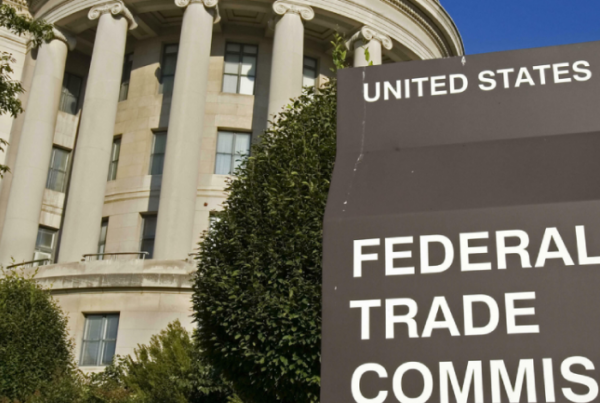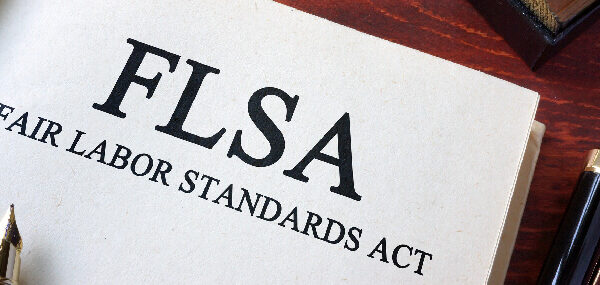Aside from union-related issues, many employers don’t give much thought to the National Labor Relations Act (“NLRA”), which applies to both unionized and non-unionized private employers.
The NLRA affords employees various rights, including to the right gather, discuss workplace matters, and collectively bargain. Section 8 of the statute prohibits unfair labor practices.
The NLRA is interpreted and applied by the National Labor Relations Board (“NLRB”), which acts through individual decisions, as opposed to traditional rulemaking. The NLRB consists of five members appointed by the President with the consent of the Senate. NLRB members have five-year terms, with one member’s term expiring each year. Accordingly, the NLRB, its composition, and its overall philosophy can change from administration to administration.
That’s just what happened regarding the construction and validity of confidentiality and non-disparagement provisions in separation agreements. Before the current administration, the NLRB analyzed confidentiality and non-disparagement provisions not by their language but by whether they were obtained in a coercive environment. In addition, merely offering a departing employee a separation agreement with unlawful provisions would not make the employer liable if the agreement was never signed.
In McLaren Macomb, 372 NLRB No. 58, the NLRB did an about face, overruling two prior decisions on the issue. McLaren held that an employer violated Section 8 of the NLRA by offering severance agreements, containing non-disparagement and confidentiality provisions, prohibiting employees from disparaging their employers and disclosing the terms of their severance agreements themselves. The provisions at issue are of the type widely used by employers.
McLaren’s confidentiality provision required employees to agree not to disclose the agreement’s terms “to any third person, other than spouse, or as necessary to professional advisors…unless legally compelled to do so…”.
Its non-disparagement provision required the employees to agree they would not “disclose information, knowledge or materials of a confidential, privileged or proprietary nature…” and would not make statements to other employees or the public that “could disparage or harm the image of the Employer.”
The NLRB changed the underlying focus on these provisions, from their bargaining circumstances to their formal language. Under the latter analysis, the NLRB held both provisions overbroad and in violation of § 8 of the NLRA.
The NLRB reasoned that an employee cannot be required to choose between accepting a severance payment and giving up rights afforded under the NLRA, including the employee’s ability to discuss workplace conditions, policies, etc.
The NLRB also did an about face in holding that an employer will violate the NLRA merely by offering an employee an agreement with overly broad provisions such as those at issue.
The NLRB also expressed concern that the restrictions were not limited by time and that the term “employer” included the employer’s parent company.
On March 22, 2023, NLRB general counsel issued a memo containing guidance regarding the decision. The memo confirms that McLaren is retroactive to agreements executed before the decision itself. This means that separation agreements executed before the decision may be challenged.
The memo also indicated what can be included in a confidentiality provision. An employee can be required to keep an employer’s financial data, customer lists and trade secrets confidential. Still, any restrictions must be limited in time and based on a legitimate business need. An employer cannot require a covered employee to keep the amount of severance and workplace policies confidential.
The memo also confirmed that McLaren is not limited to severance agreements. Moreover, the memo states that a savings clause or disclaimer may be helpful in resolving ambiguities, but will not be sufficient to cure overly broad restrictions.
The NLRA generally does not apply to supervisors. That said, employers should not rely on an employee’s title and instead should carefully consider an employee’s job function to determine whether the employee is excluded from coverage.
Interestingly, while supervisors are generally exempt from the NLRA, the statute protects them from refusing to enter into an unlawfully broad separation agreement. Employees wrongfully discharged under the NLRA may be ordered reinstated with backpay.
Given the nature of the appointments to and term limits of NLRB members, it is possible that, just as McLaren changed the analytical landscape for non-disparagement and confidentiality provisions, another decision may again do so as the NLRB’s composition and focus changes in the future.
Nonetheless, McLaren governs now, and employers should not ignore its potential impact. The NLRB has already cited McLaren, for example, in rejecting a disparagement provision in a “last chance” agreement which conditionally rehired a properly discharged employee. That provision prohibited disparaging the employer on social media, and did not define “disparage.” Because the provision did not indicate that the employee could post on social media about working conditions, the NLRB concluded that a reasonable employee would believe such conduct was prohibited, in violation of the NLRA. Challenge Manufacturing Holdings, Inc. and Lacey, 2023 WL 2866336 (April 10, 2023).
Employers should carefully review all of their template employment agreements, particularly separation agreements. Employers should also review previously executed agreements and assess whether it makes practical sense to take any action regarding them.
Employers should work with legal counsel to narrow the scope of existing confidentiality and non-disparagement provisions where practical and appropriate. Employers should also think critically about which agreements are being used with which employees—e.g., separation agreements containing only narrowly tailored confidentiality provisions should be used with non-supervisory employees. Along these lines, employers should work with legal counsel to answer questions about which employees are “supervisors” and are outside of most of the NLRA’s protections.
Employers should consider including in separation agreements time limits, savings provisions, and disclaimers, including language that such agreements do not affect employees’ rights to discuss working conditions and union matters or to bring unfair labor or discrimination charges with the NLRB or EEOC. Severance amounts should also be disclosed in the agreements.
FOS attorneys can help your company review existing and contemplated employment agreements in light of McLaren’s dramatic change in the analysis of separation agreements’ non-disparagement and confidentiality provisions.






